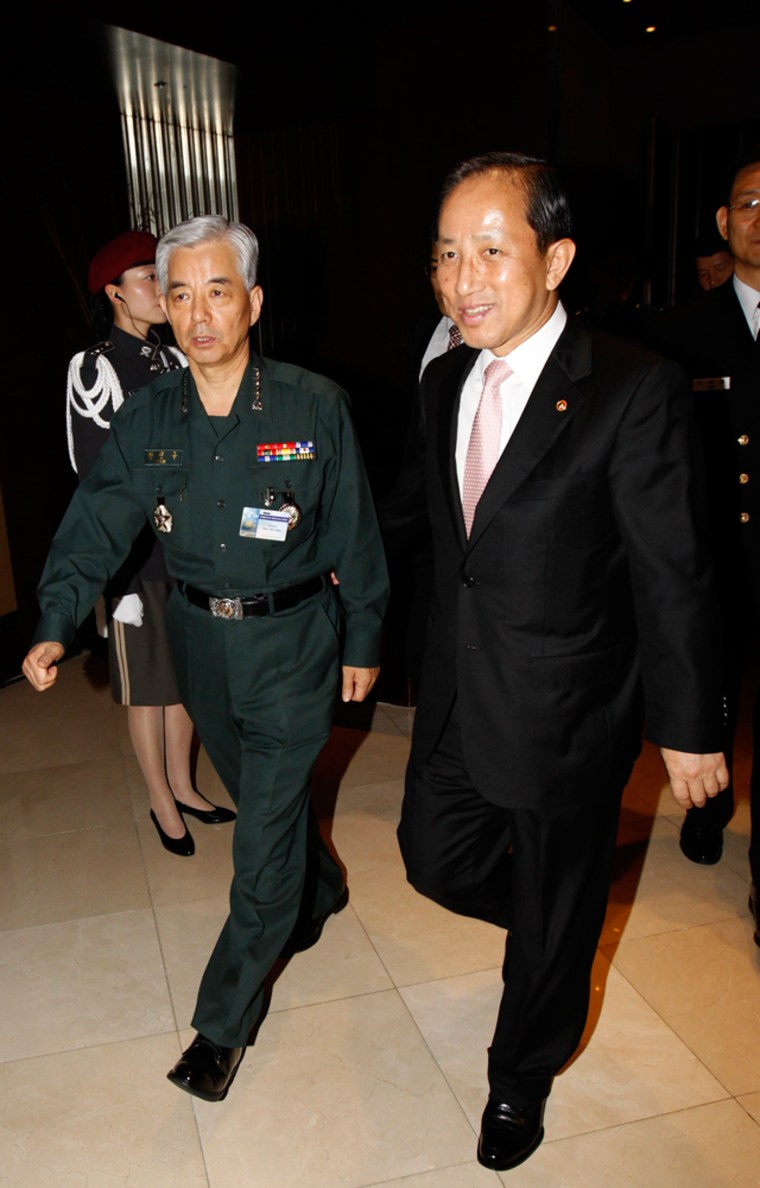South Korea's defense minister raised the possibility of redeploying U.S. tactical nuclear weapons in the country Monday, after North Korea showed off its latest advances in uranium enrichment.
Kim Tae-young told lawmakers that such an option could be discussed next month at a newly created joint military committee to enhance deterrence against the North's nuclear programs.
"We will review (the redeployment) when (Korea and the U.S.) meet to consult on the matter at a committee for nuclear deterrence," Kim told a parliamentary committee hearing, according to .
"The Seoul government is closely cooperating with the U.S. in terms of intelligence sharing. So, (the revelation of the new uranium enrichment facility) did not come as a sudden surprise to us," he added.
It was announced in 1991 that U.S. tactical nuclear weapons would be removed from the country, the Korea Herald said.
that Kim was a "well-known hawk," saying he had been criticized by the South's president for his "previous tough talk."
'Effective tool'However Cheon Seong-whun, of Korea Institute of National Unification, told the Financial Times that Kim's stance could help influence the North.
"Even though relocating nuclear weapons to South Korea could provoke China or Russia, it could be an effective tool to press the North," he said, according to the newspaper.
The United States and the North's neighbors have been scrambling to deal with Pyongyang's revelation to a visiting American nuclear scientist of a highly sophisticated, modern enrichment operation that had what the North says are 2,000 recently completed centrifuges.
The scientist, Siegfried Hecker, posted a report over the weekend that he said he was taken during a recent trip to the North's main Yongbyon atomic complex to a small, industrial-scale uranium enrichment facility.
The facility appeared to be primarily for civilian nuclear power, not for North Korea's atomic arsenal, Hecker said.
But, he said, it "could be readily converted to produce highly enriched uranium bomb fuel."
Uranium enrichment would give the North a second way to make nuclear bombs, in addition to its known plutonium-based program. North Korea has conducted two nuclear tests to date and is believed to have enough fissile material to make several nuclear warheads.
However, Stephen Bosworth, the U.S. special envoy for North Korea, said Monday the revelation of North Korea's nuclear advance not a surprise.
"This is obviously a disappointing announcement. It is the latest in a series of provocative moves ... it is a very difficult problem we have been struggling to deal with for 20 years," Bosworth told reporters in Seoul.
But he added this was "not a crisis, we are not surprised."
"We have been watching and analyzing the (North's) aspirations to produce enriched uranium for some time," he added.
"My crystal ball is foggy but I would never declare any process dead," Bosworth said when asked about the fate of regional six-party talks. "We have hope that we will be able to resuscitate (them)."
